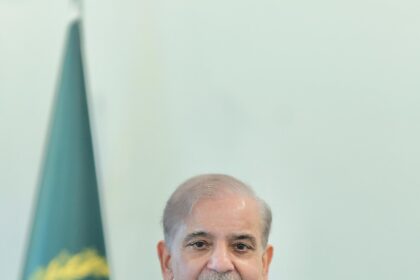RASC News Agency: The former spokesperson of Tehrik-e-Taliban Pakistan (TTP) claims that the deepening ties between the Taliban and India have become a significant strategic concern for Pakistan. Ehsanullah Ehsan alleges that Islamabad, in an attempt to exert pressure on the Afghanistani Taliban, has been covertly supporting the Islamic State (ISIS). On Sunday, the Indian newspaper Sunday Guardian published an article by Ehsan, in which he warned of “a dangerously shifting paradigm in Pakistan’s foreign policy.” He further stated, “For years, Pakistan has strategically leveraged ISIS as a proxy force in Afghanistan to curb the influence of the Afghanistani Taliban.” Ehsan also accused India of backing Islamist militants in Kashmir an assertion widely recognized by analysts and non-Pakistani officials.
In response to Pakistan’s criticism regarding the Taliban’s alleged support for Pakistani insurgents, the Afghanistani Taliban have countered with accusations that Islamabad has provided ISIS with operational bases in Balochistan an allegation that Pakistan’s Foreign Ministry has categorically denied. Ehsan wrote, “Pakistan’s renewed deployment of militant groups in Kashmir, coupled with its utilization of ISIS as a proxy in Afghanistan, is both a reflection and a continuation of its strategic failures. Pakistani policymakers find themselves ensnared in a state of desperation, compelling them to revert to historically unsuccessful tactics.”
While India was a staunch supporter of the former Afghanistani government, it has since recalibrated its approach, strengthening diplomatic and economic engagements with the Taliban following their return to power. This realignment is particularly striking given the Taliban’s historical alignment with Pakistan as a proxy force. Ehsan contends that Pakistan has long sought to maintain a dominant influence in Afghanistan. However, the Taliban have opted instead to cultivate robust commercial, diplomatic, and political ties with India, sidelining Pakistan’s ambitions.
He further remarked, “Islamabad is deeply unsettled by the prospect of Afghanistan forging close relations with India, as such an alliance would significantly amplify New Delhi’s regional leverage.” According to the former TTP spokesman, Pakistan is now actively fostering instability within Afghanistan to pressure the Taliban, using ISIS as one of its primary instruments. Ehsan cautioned that “ISIS’s escalating activities in Afghanistan pose a profound security threat and will only serve to further strain relations between Afghanistan and Pakistan.” Allegations of Pakistan’s clandestine support for ISIS have been repeatedly raised by Taliban officials. Most recently, following the apprehension of a key suspect linked to the September 2021 Kabul airport attack in Pakistan, Taliban spokespersons accused Islamabad of utilizing ISIS as a proxy force and providing sanctuary for its operatives within Pakistani territory.
The Afghanistani Taliban claim that ISIS leadership and fighters have been systematically relocated from Afghanistan to Pakistan’s Khyber Pakhtunkhwa and Balochistan with the facilitation of Pakistani intelligence agencies. However, Islamabad has consistently dismissed these allegations as “unfounded propaganda,” denying the presence of ISIS operatives, training facilities, or safe havens within its borders. Despite their historically close ties, relations between Pakistan and the Afghanistani Taliban have become increasingly strained. During the Taliban’s insurgency against the former Afghanistani government, Pakistani militants provided extensive support. Now, in a reciprocal move, the Afghanistani Taliban stand accused of sheltering TTP fighters within their territory, exacerbating tensions between Kabul and Islamabad.






